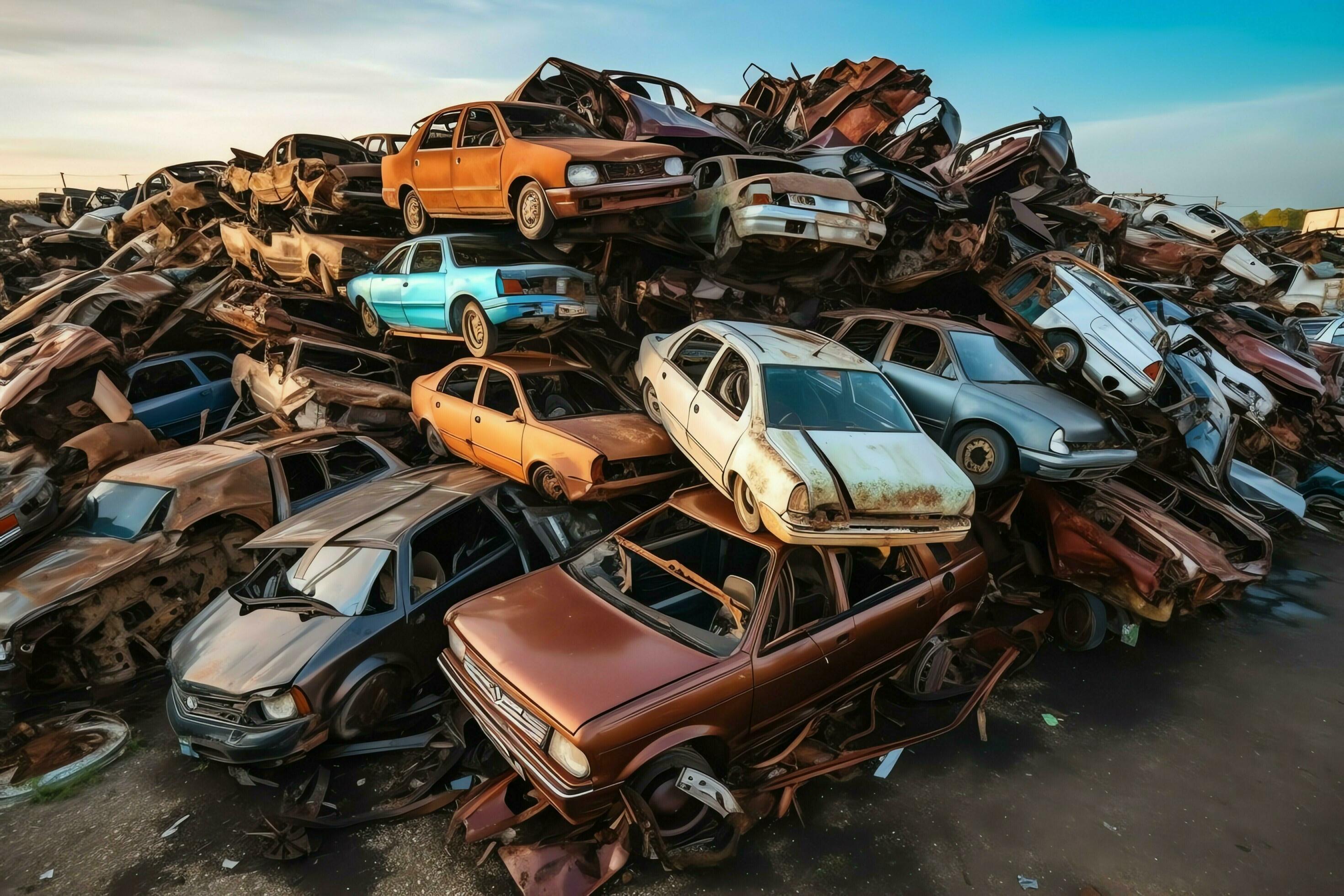Scrap My Car: Hassle-Free Scrap Car Providers Available Now
Scrap My Car: Hassle-Free Scrap Car Providers Available Now
Blog Article
The Ecological and economic Advantages of Recycling Scrap Autos
Recycling scrap vehicles presents numerous financial and environmental benefits that prolong well beyond waste decrease. By reclaiming as much as 90% of lorry parts, this practice dramatically decreases landfill worry while preserving necessary natural resources. In addition, it reduces energy usage and greenhouse gas emissions connected to basic material extraction and production. The process additionally produces job opportunity across numerous markets, from taking apart to logistics, and gives consumers with economical automobile parts. These benefits underscore the multifaceted value of recycling scrap autos, yet there are even more elements to think about when evaluating its complete effect.
Minimizing Garbage Dump Waste
Minimizing landfill waste with the recycling of scrap automobiles plays a pivotal function in environmental preservation. Efficient recycling processes can significantly lower the volume of waste that ends up in landfills when cars reach the end of their life cycle. Junk cars and trucks, if not appropriately recycled, add to the growing issue of garbage dump overcapacity, aggravating environmental degradation and possibly infecting dirt and groundwater with harmful materials such as oil, gas, and heavy steels.

Furthermore, the reusing process alleviates the negative results of vehicle waste on biodiversity. Land fills are notorious for interrupting neighborhood communities, and lowering the influx of junk vehicles assists maintain all-natural environments. Eventually, reusing junk vehicles is a tactical method that promotes lasting waste administration, straightening with broader environmental objectives.
Conserving Natural Resources
Along with mitigating garbage dump overcapacity, reusing scrap autos plays a substantial function in preserving all-natural sources. The automobile sector is greatly dependent on various metals, plastics, and various other products that call for comprehensive mining and handling. By reusing junk cars and trucks, we dramatically decrease the demand for raw materials, thereby suppressing the ecological degradation related to mining activities. As an example, reusing steel from old lorries minimizes the requirement for iron ore extraction, which consequently decreases power intake and greenhouse gas emissions.
Moreover, the procedure of reusing cars and truck parts such as lead, copper, and aluminum is far less energy-intensive than creating these materials from virgin resources. This energy cost savings translates directly into minimized nonrenewable fuel source intake and lower carbon impacts (junk car buyers). Additionally, by redeeming and repurposing products, we extend the lifecycle of non-renewable resources, ensuring they stay readily available for future use
Moreover, recycling auto liquids like transmission, antifreeze, and oil liquid protects against harmful substances from contaminating dirt and water resources. Through methodical reusing initiatives, these fluids can be purified and reused, advertising a circular economy and further lessening the pressure on all-natural resources. Thus, reusing junk cars uses a complex strategy to preserving our planet's indispensable natural assets.
Creating Job Opportunities
The recycling of junk vehicles not just profits the atmosphere but also boosts economic development by developing job possibilities. This growing industry uses a large array of employment leads, ranging from the first collection and transport of old vehicles to the complex see here now procedures of dismantling, arranging, and repurposing the numerous components.

The spreading of recycling plants additionally intensifies the work market, demanding functions such as engineers, equipment operators, and quality assurance experts to take care of the advanced machinery and ensure conformity with environmental guidelines. Also administrative placements, such as sales, marketing, and consumer service, see a surge as the sector expands.
Decreasing Production Costs
By including recycled materials from junk cars, makers can significantly decrease manufacturing expenses. The power called for to refine recycled materials is considerably much less than that required to create brand-new materials from scratch.
Additionally, the reusing process aids simplify the supply chain by providing a consistent influx of materials that are conveniently offered and frequently more affordable than newly extracted sources. These price performances are especially essential in an extremely affordable sector like automobile production, where margins can be razor-thin. Furthermore, the recycling of junk automobiles assists alleviate the volatile pricing of resources, making it possible for manufacturers to better forecast and control their production budgets.
Supplying Inexpensive Vehicle Parts
When scrap vehicles are recycled, the availability of cost effective automobile components significantly enhances, profiting both customers and repair service shops. Recycled car parts are often cost a fraction of the cost of repairs, providing a cost-effective choice for car proprietors and mechanics. This cost can be crucial for people who may not have the monetary means to purchase brand-new parts, allowing them to preserve their vehicles in functional and risk-free problem.
Repair shops additionally obtain from this boosted availability of affordable components. By sourcing recycled components, these services can minimize their operational prices, which can be passed on to customers with reduced service charges. This, consequently, can cause greater customer complete satisfaction and commitment, as clients value the price financial savings without endangering on top quality.
In addition, the quality of recycled parts has boosted significantly throughout the years, many thanks to advancements in reusing procedures and top quality control procedures. Many recycled components undergo rigorous testing to ensure they meet market criteria, providing integrity similar to brand-new parts - sell car to junkyard. By offering a top notch and financially feasible option, the recycling of scrap cars and trucks plays a crucial duty in sustaining both the automotive fixing industry and the wider consumer market
Verdict
Reusing junk autos presents substantial financial and environmental advantages by considerably reducing landfill waste and conserving natural deposits. This practice reduces making costs by redeeming approximately 90% of automobile parts, therefore lowering power intake and greenhouse gas emissions. Furthermore, it generates work opportunities across various industries and materials affordable automobile parts, boosting the automobile repair industry. Overall, the recycling of junk cars supports both financial development and sustainability goals.
Recycling scrap cars presents buy junk cars for cash near me countless economic and environmental benefits that expand well beyond waste decrease. Junk cars, if not appropriately reused, contribute to the expanding problem of garbage dump overcapacity, intensifying environmental deterioration and potentially infecting dirt and groundwater with hazardous substances such as oil, gas, and hefty metals.
By reusing junk vehicles, we sell car no title near me considerably minimize the demand for raw products, consequently suppressing the environmental destruction linked with mining tasks.When scrap cars and trucks are recycled, the schedule of inexpensive auto parts dramatically increases, profiting both customers and fixing shops.Reusing scrap automobiles provides significant economic and ecological benefits by significantly reducing garbage dump waste and preserving natural sources.
Report this page